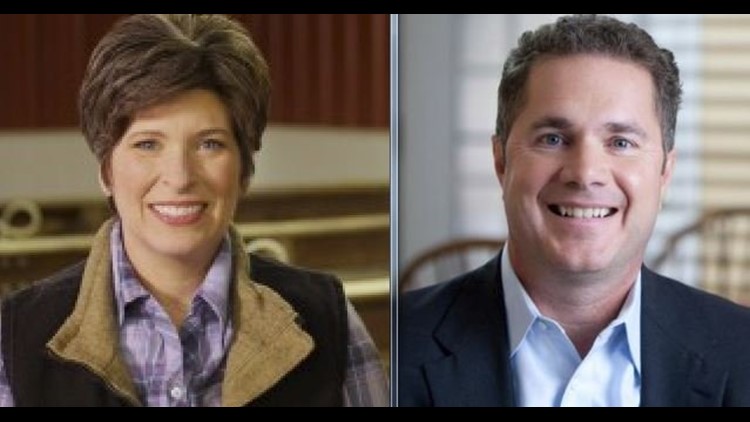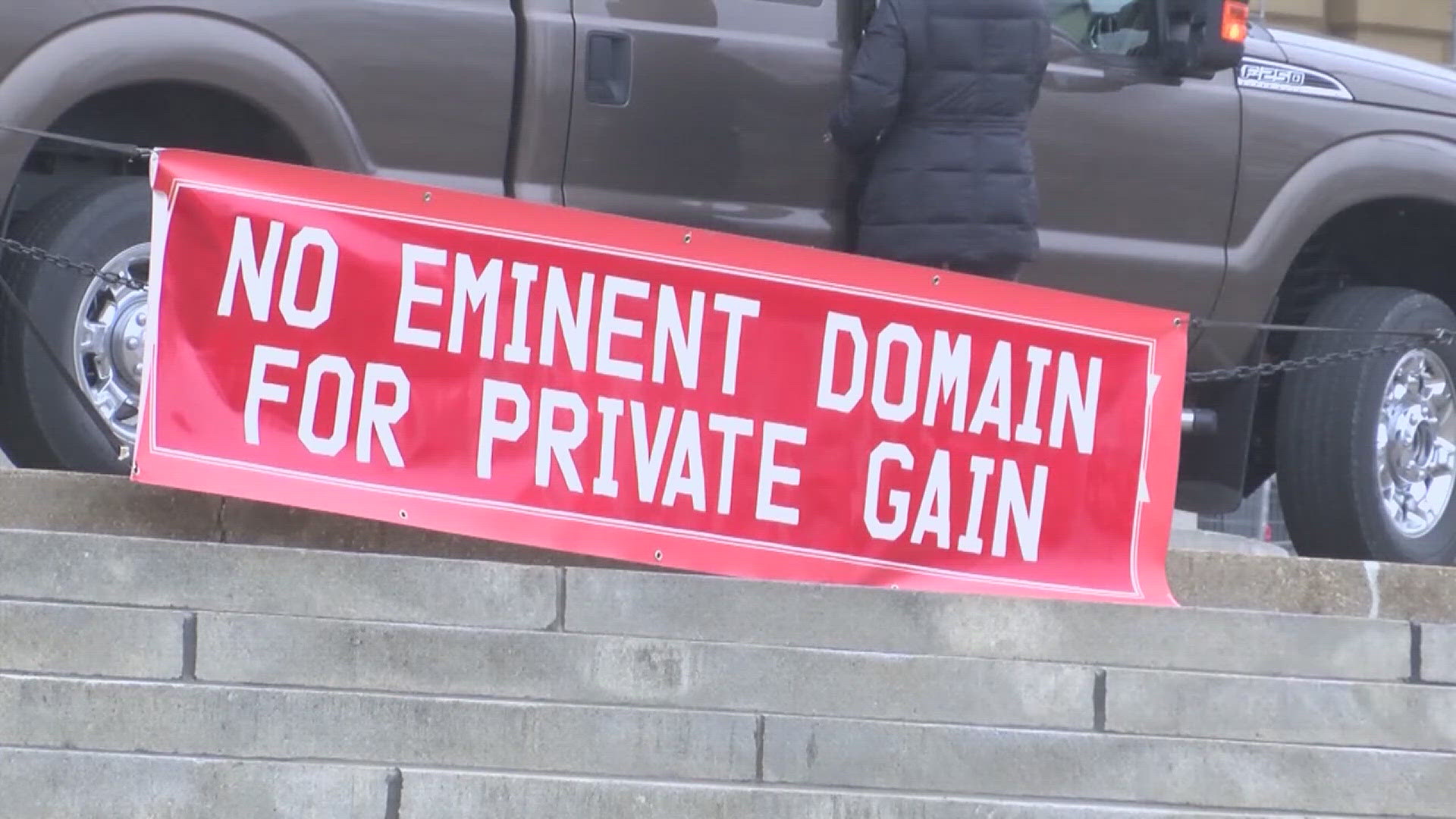When it comes to energy, Ernst, a Republican state senator, and Braley, a Democratic congressman, both have controversial positions to defend to voters.
Ernst elaborated on her position to shutter the Environmental Protection Agency, a move that critics say will make Iowa more polluted. Braley, meanwhile, explained his flip-flopping on the Keystone Pipeline that has left some Iowans skeptical about his commitment to create jobs.
The debate made it clear: Environmental regulation is the issue where the 2014 hopefuls really differ.
The states know how to best protect their natural resources, Ernst said, saying that “the EPA has overreached.”
Braley accused his Republican opponent of not wanting to ensure the cleanliness of the country’s air and water.
Braley himself was put on the defensive when he was asked why he had switched his position from supporting the construction of the Keystone XL Pipeline to opposing it.
“When the pipeline was first proposed and we were first asked to vote on it, a lot of promises were made about what was going to happen with the oil produced in that pipeline and the jobs it created,” Braley said. “But the more I looked into it and the more I talked to Iowans, there was no guarantee that the oil produced and sent through that pipeline was going to stay in the United States and benefit U.S. consumers. And there was no guarantee that a lot of jobs would be create for Iowans.”
The pipeline, which has yet to receive federal approval, would not run through Iowa, although the Republican Patty of Iowa strongly supports the measure as a part of their platform.
At the center of the energy debate, the candidates swapped jabs about another kind of green: special interest dollars.
Braley accused Ernst of favoring the interests of the oil industry over those of the alternate energy because she is backed by oil money.
Ernst said the EPA overreached when the federal agency sent workers to Iowa to manage the water supply of agriculture producers, and accused Braley of supporting the agency because he is backed by wealthy environmentalists.
The two candidates displayed a smaller gap in positions when it came to foreign policy. Both expressed concern over vetting and arming Syrian rebels to fight ISIS there.
Ernst and Braley’s parties differ greatly on immigration, but in this Senate race, the difference was a matter of degrees.
The Republican said she is opposed to amnesty for undocumented immigrants already in the country but would not vote to repeal an Obama administration program that grants relief to some youths who were brought illegally into the country as children.
Braley went a step further, saying that the Deferred Action for Childhood Arrivals, as the program is known, is working well for Iowans.
“I’ve talked to young people in Iowa who are using it … and I’ve seen what it’s done to give them hope and opportunities to get a job and make a better future for themselves and their families,” he said.
For much of the election, Braley has tried to shake his white collar image, after he made comments suggesting that Sen. Chuck Grassley was merely “a farmer with no law degree.”
Ernst capitalized on that gaffe last night.
“I am a young woman who grew up on a southwest Iowa farm drinking well water. My father is a farmer, and our farmers are some of the best conservationists out there. ”
But Braley bit back.
“That’s why my ancestors came from Ireland during the potato family, settled across the river in Cole Valley to start a better life for themselves. Than they moved to Iowa to start a farm. My great-great-grandfather died breaking that prairie.”
On debate night, a new Des Moines Register poll showed the candidates in a dead heat. Ernst now leads 47% to 46% over Braley, down from a 6-point lead in their last poll.



